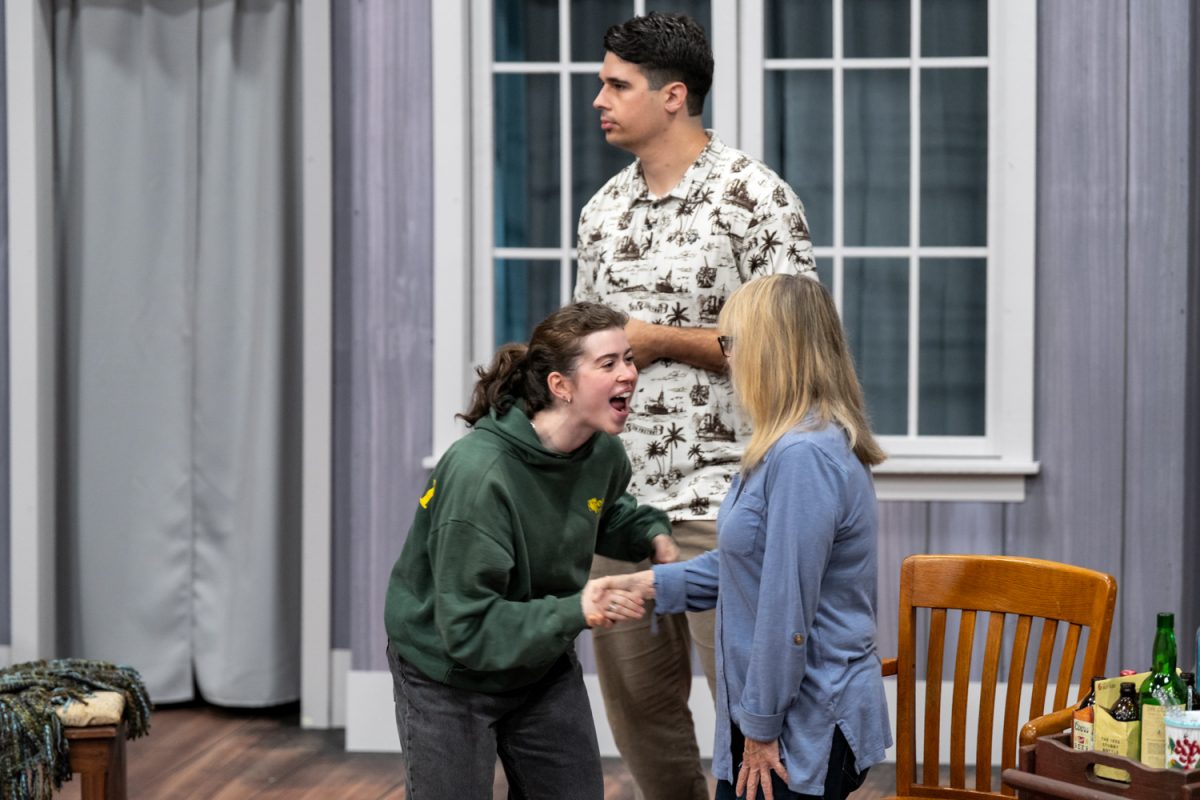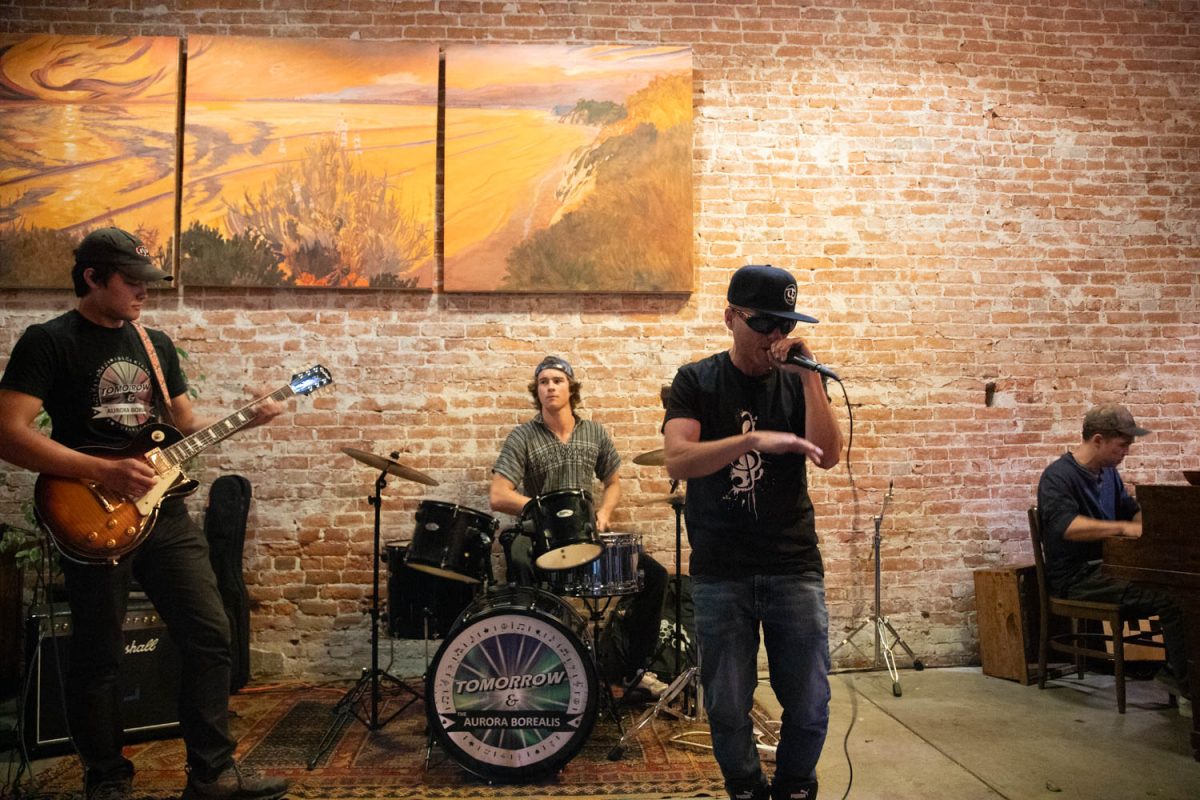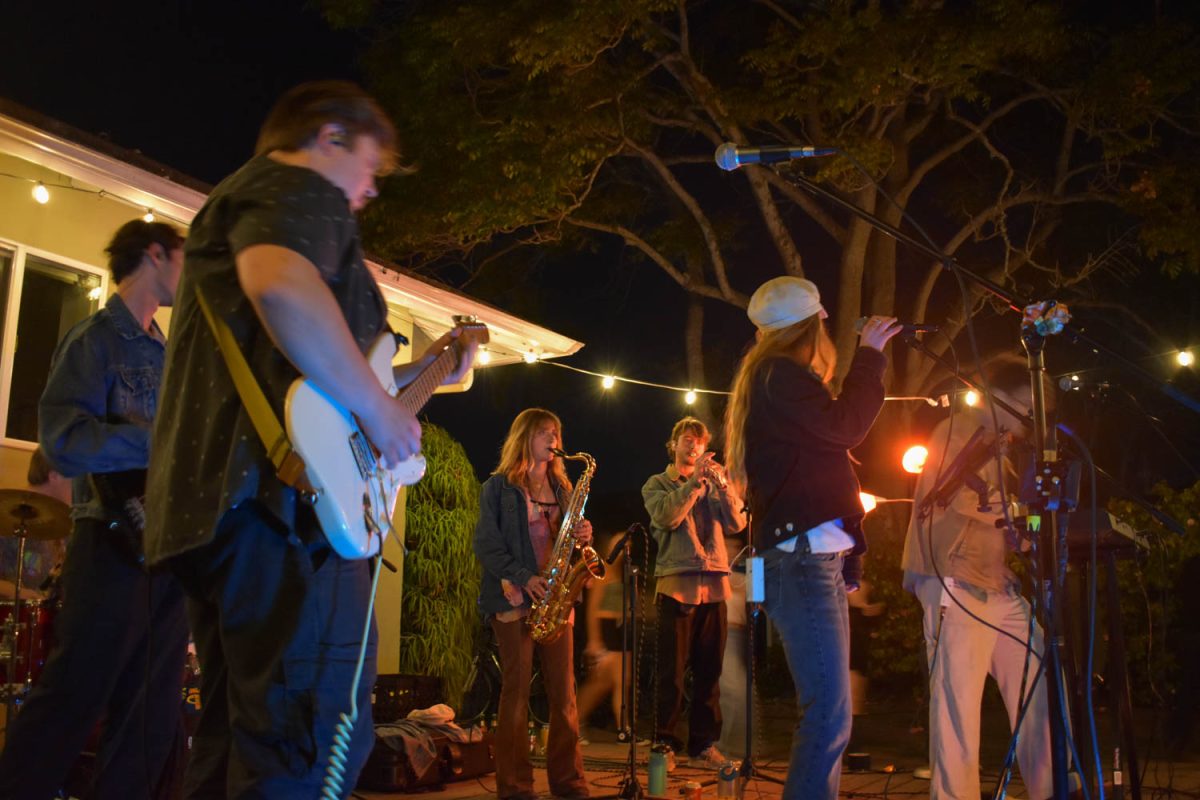After living in Venice, California for several years and being known as the “painter to the stars” for painting houses in Beverly Hills for over 30 years, Karl Vance returned to City College three years ago at age 65. As a second-year student with a major in liberal arts with an emphasis in humanities, Vance gained knowledge of music production and business after realizing his real desire for writing.
Born into the baby boomer generation, Vance was raised between the Korean War and the Vietnam War, which he describes as the intermittent good years, or the “IGY” years for short. Similarly, one of Vance’s favorite songs, “I.G.Y.,” was released in 1993 by Steely Dan. Vance expresses his love and admiration for Donald Fagen, the co-founder of the rock band, and his writing. To Vance, Fagen was a huge motivator for his own songwriting, and Steely Dan had a way of describing their background through music, letting their listeners understand New York after listening to a couple of their songs.
“Lyrics can lead a song and in a lot of ways should, because we’re tributors, right? Musicians are tributors,” Vance said. “We tell the story, you know. A song is not a song until it has lyrics. Once you throw the story in there, it becomes a song.”
According to his adoptive parents, during his adolescence as a foster child, Vance would sing “Wives and Lovers,” a song released by Burt Bacharach and Hal David in 1963.
To Vance, this memory was one of his first encounters with music.
From sixth to eighth grade, he wrote music in his head and began developing songs as a hobby.
“I’ve always been more of a person to make up music as opposed to play someone else’s music,” Vance said. “Sounds very egotistical, but I’ve always wanted to improve and stretch the boundaries of my music.”
As he grew older, Vance’s musical efforts grew as well. When he was around 20 years old, he met a saxophone player in Santa Barbara and was connected with the “Total Experience Record Label” in Los Angeles. He learned from different parts of the music industry, which fueled his desire to register and apply to study at City College and broaden his knowledge in the music department.
Despite now being able to pursue his dream of songwriting and music production, three years ago, Vance was a painting contractor working for Michael Douglas in Beverly Hills. Vance recalls driving through Los Angeles looking for jobs like he would in Santa Barbara around Hope Ranch.
His time in this area of work was during the 1980s. While working as a young Black man in a wealthy area, he was continuously stopped by police officers in Beverly Hills. To turn this hardship into a chance for more job opportunities, Vance would start to get to know them by frequenting the coffee shops popular with the officers, gaining positive relationships instead of negative ones.
His business started to bloom, and he became known as the “painter to the stars,” often working for various celebrities in Los Angeles.
Moving forward 30 years, on the first day Vance returned to Santa Barbara, he decided to visit City College’s West Campus, missing the view from the Great Meadow. Later that same day, he enrolled in 16 music classes.
Building on his education, Vance concluded that musicians need a firm foundation in the following areas: being able to read and write music, produce it, and circulate and distribute it.
Despite the music business being completely different than when he was 20 years old due to the rise in the digital era, Vance kept pursuing his love for music, founding Muggface Records. He believes that while pursuing a career in music, a musician can have several different aspects of their art.
“You can be a player, or you can be a writer,” Vance said. “But what if you’re both, and you produced and distributed?”
After Vance accidentally registered and took a video production class with Stephen Devega, who he has now become great friends with, he discovered that any type of production needs music to be complete. He now recommends this class to all music students and any other video class, which Vance believes can open so many more opportunities in the long run.
“Go get your education, prove to people that you have the ability to do something, and two semesters of being able to do music supervision in a student film can get you a job in L.A. if that’s what you’re looking for,” Vance said. “This is a great opportunity, this school.”
Throughout his journey, Vance has been able to place systems in his life, both in class and in the studio. His philosophy is that one of the highest forms of the human spirit can be found through joy, laughter, and creation. According to Vance, music is his passion, but it is not the only way to create.
“You create through conversation, you create through body movement, you create through so many things,” Vance said.
The systems he sets in place for music are for songwriting, which he learned after taking songwriting classes with Ralph Lowi. He describes this as immeasurable. Vance believes it can help him implement a system for writing songs and reading sheet music correctly.
“If you learn your subject well, you can implement systems within it that will allow you to be proficient in your task,” Vance said. “Learning all I can about music will allow me to put it in a scope where I can be proficient enough at it to where I can implement systems that allow me to produce, write, and distribute. It’s just like any other business.”
After being a student at City College for three years, Vance describes being in the zone for the entirety of those years, being able to use his creativity at its maximum. He explained how in any area of life, combining talent and technique can lead to the highest form of creation.
“When you combine, you’re at the highest form of creation and the highest form of consciousness, and then you’re at the highest form of who you are,” Vance said. “Ain’t that a great place to be? Why wouldn’t you want to be creative all day long?”
Duke Hagen contributed to the reporting for the article.














